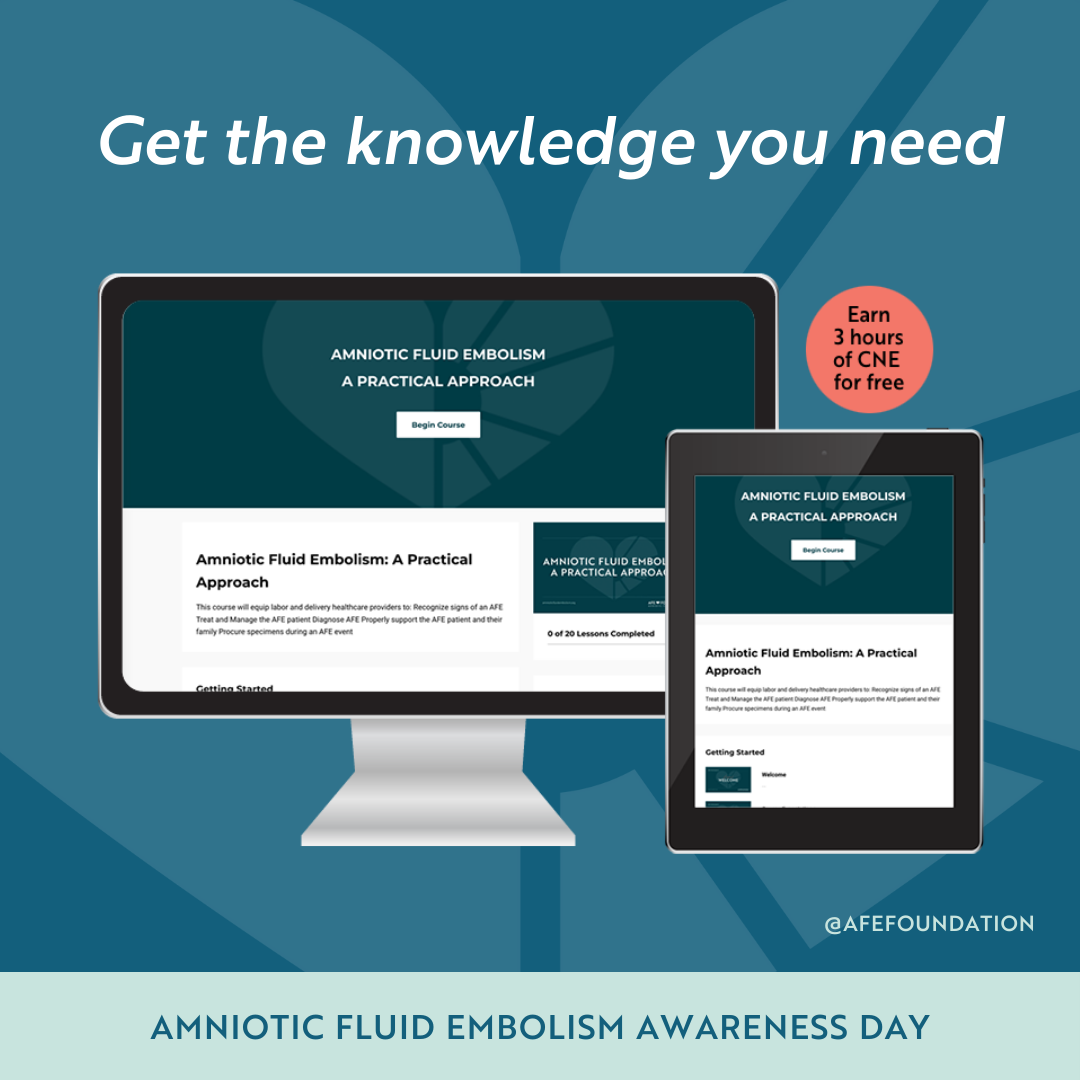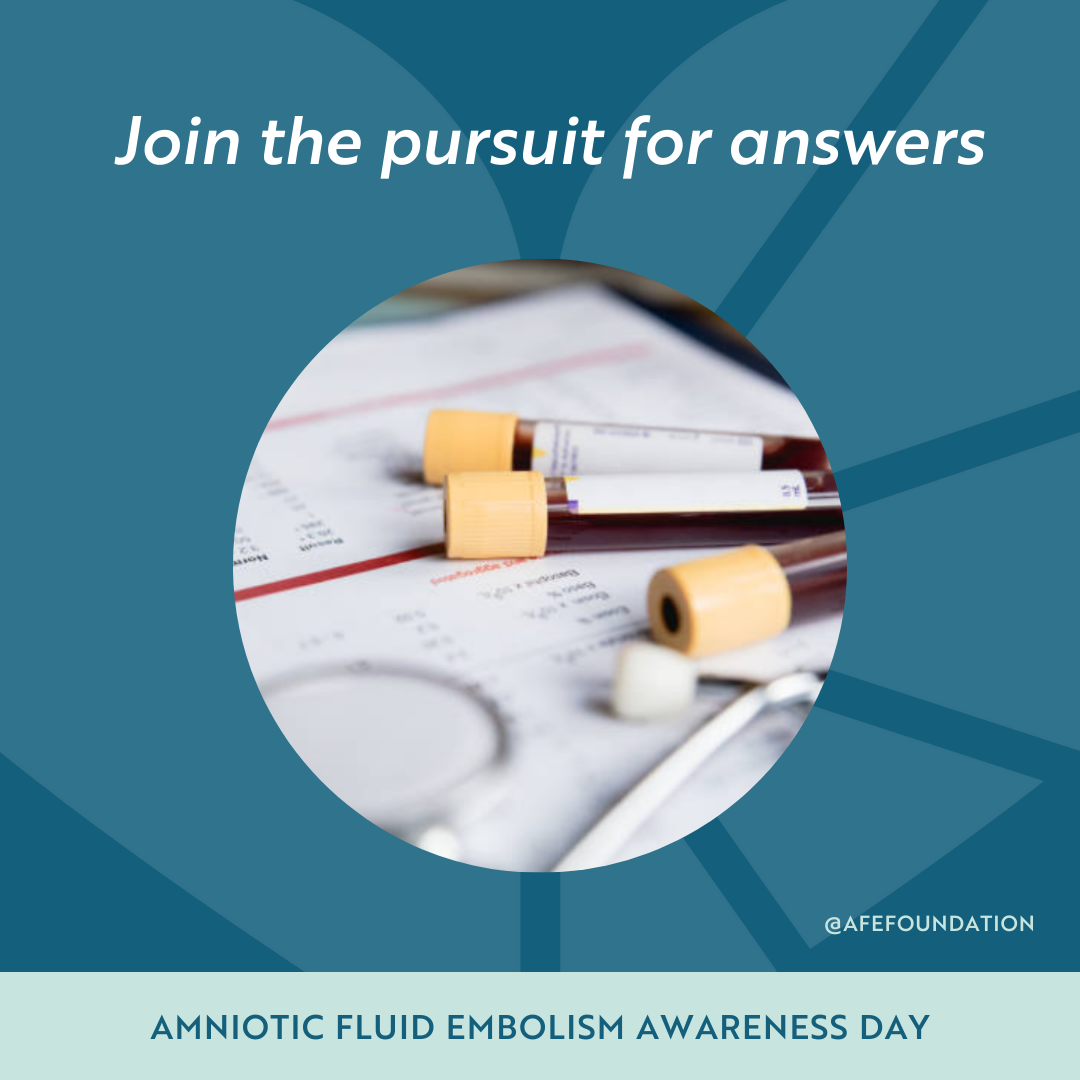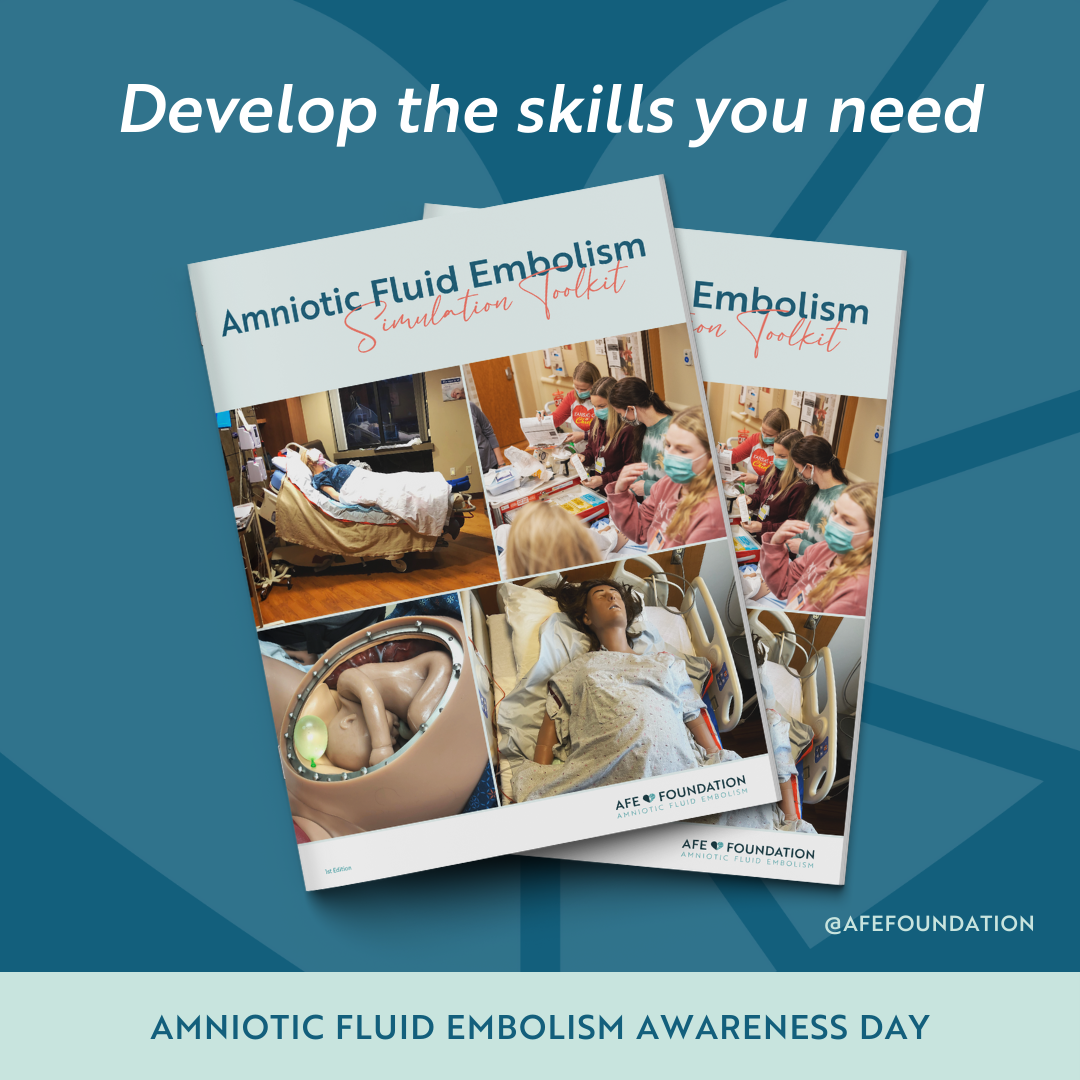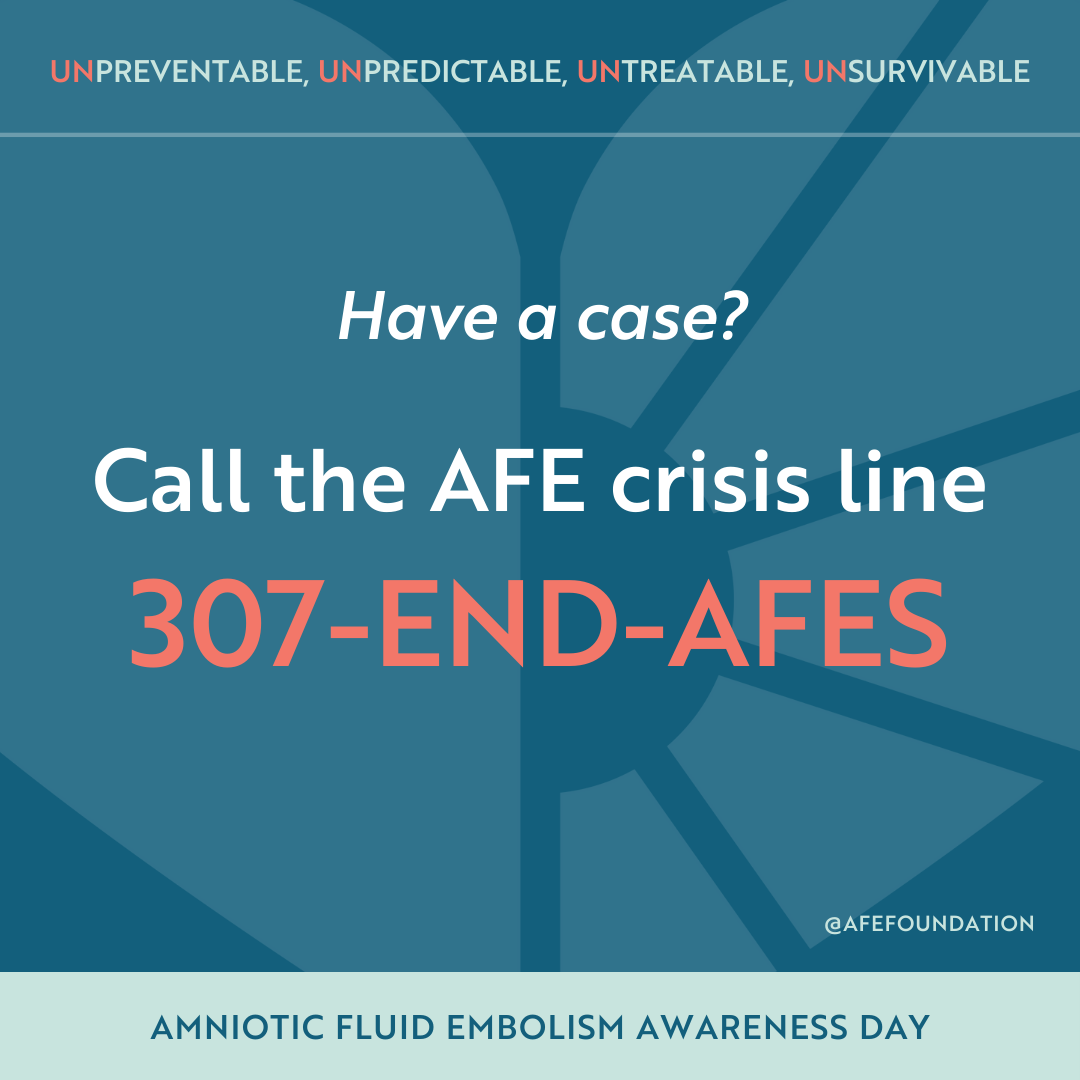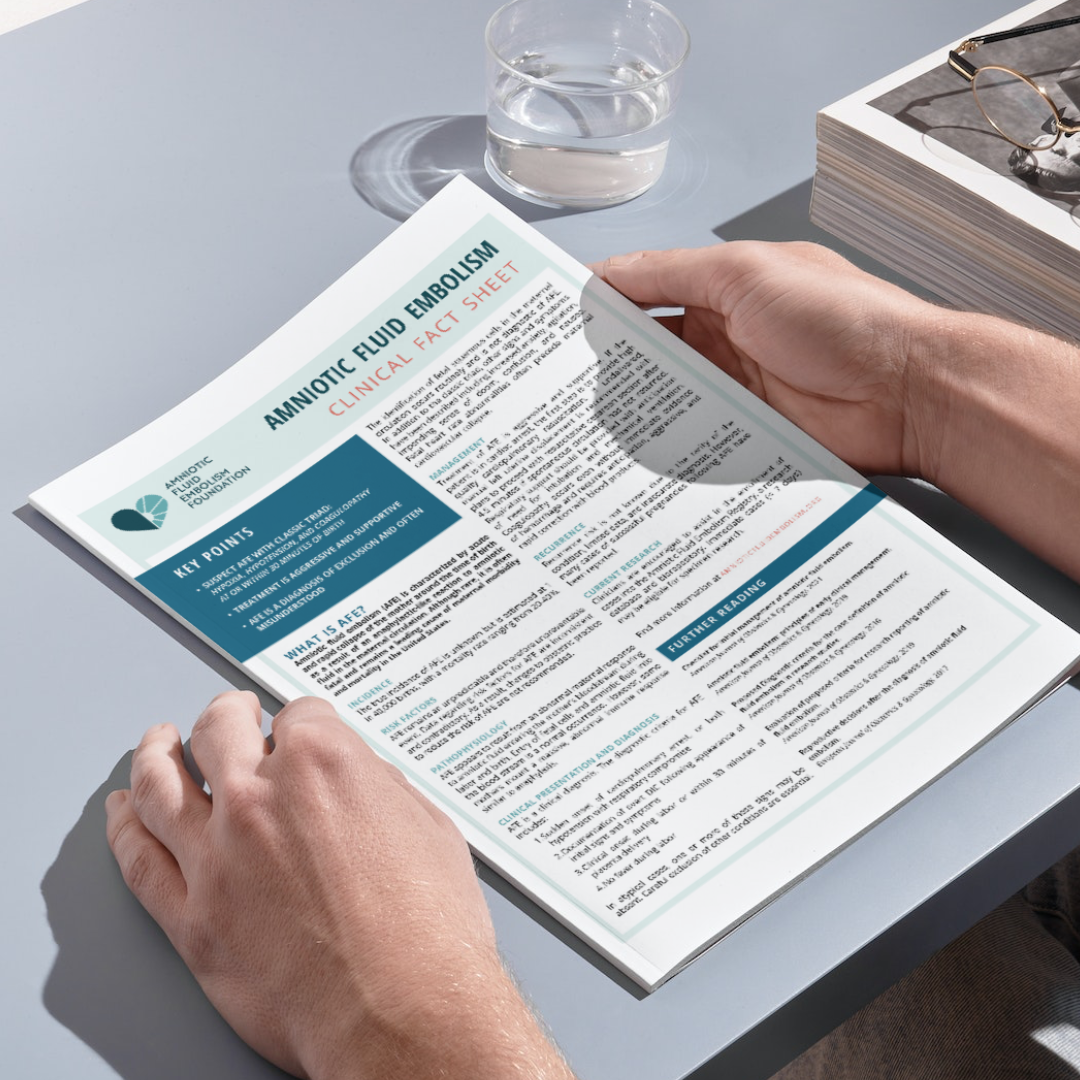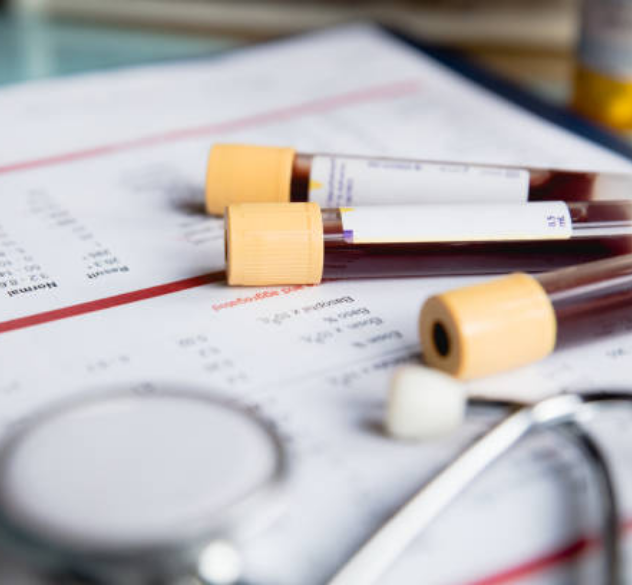Clinicians are Key To Helping Us #ENDAFE
Raise AFE Awareness
Engagement Toolkit
Take the pledge to help make AFE:
Un preventable. Un predictable. Un treatable.
- Post
Share these toolkit graphics and engage on social channels (Instagram, Facebook, LinkedIn, X). - Provide
Funding for education, research and support. Help us reach our goal of $25,000. - Participate
Take our course, implement our AFE Simulation Toolkit, submit a case, or invite us to speak.
AFE Awareness Day joins the affected community to raise awareness, honor their connection to the cause, and inspire meaningful action.
What is an Amniotic Fluid Embolism?
An amniotic fluid embolism (AFE) is an obstetric emergency characterized by acute hypotension, hypoxia, and coagulopathy. It is thought to be a result of an anaphylactic-like reaction to amniotic fluid or fetal components in the maternal circulation, a normally benign result of the birthing process. Although rare, it is often-fatal and remains a leading cause of maternal morbidity and mortality in the United States. It may also be referred to as anaphylactoid syndrome of pregnancy. Why Raise Awareness? AFE is a rare and catastrophic event affecting 1 in 40,000 pregnancies with nearly 40% experiencing a cardiac arrest as the first symptom. Most healthcare staff who encounter a patient with AFE will likely have no actual AFE patient care experience and limited practice in how to respond. Raising AFE awareness is crucial for early recognition and prompt intervention to improve outcomes for mothers and babies.
Why Raise Awareness?
AFE is a rare and catastrophic event affecting 1 in 40,000 pregnancies with nearly 40% experiencing a cardiac arrest as the first symptom. Most healthcare staff who encounter a patient with AFE will likely have no actual AFE patient care experience and limited practice in how to respond. Raising AFE awareness is crucial for early recognition and prompt intervention to improve outcomes for mothers and babies.
Key Messages
- AFE is characterized by sudden hypotension, hypoxia, and disseminated intravascular coagulopathy.
- AFE is estimated to affect 1 in 40,000 pregnancies.
- AFE remains poorly understood but is thought to involve a severe immune response to amniotic fluid in the maternal circulation.
- Treatment is entirely supportive.
- AFE is a clinical diagnosis of exclusion.
- Clinicians, patients or family members are encouraged to submit cases to the AFE Registry.
- Specimens taken before and during an AFE are needed for clinical research.
Spread awareness using our unique hashtags and key messages.
#ENDAFE # AmnioticFluidEmbolism #AFEAwarenessDay @afefoundation
Social Media Resources
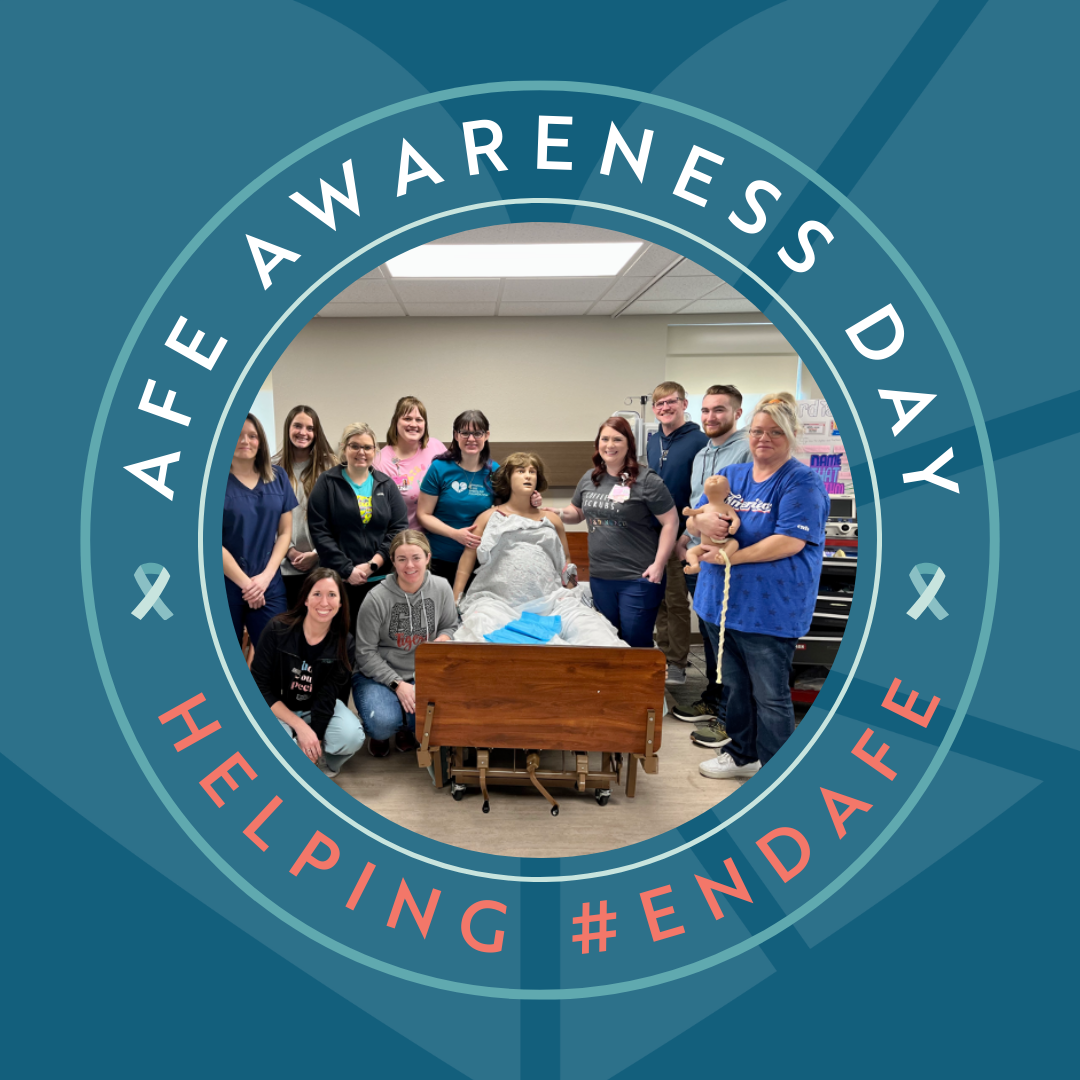
Change Your Profile Photo
Click on this image to add your own picture and create your custom profile photo using the free site, Canva.
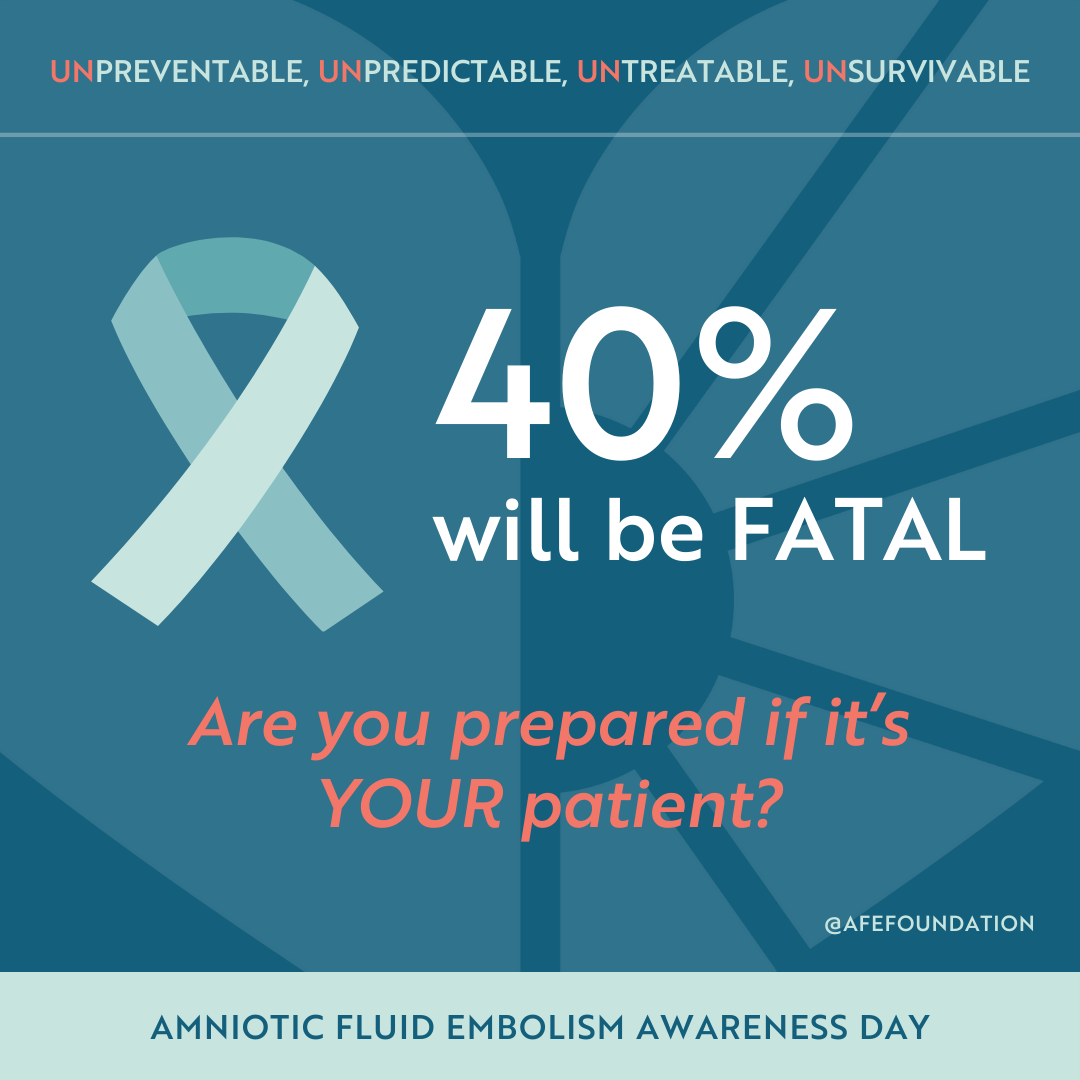
Primary Campaign Graphic
Click on this image to download.
Caption: Learn more about AFE and
how you can be prepared. (Offer
amnioticfluidembolism.org or your
preferred AFE educational offering).
Supporting Graphics & Captions
Click on the images below to download each graphic. These make great carousel posts!
Educational Downloads
Click on the images below to download.
Join Our email list
Receive Updates on AFE News, Events and Research
No more than 6 emails per year

